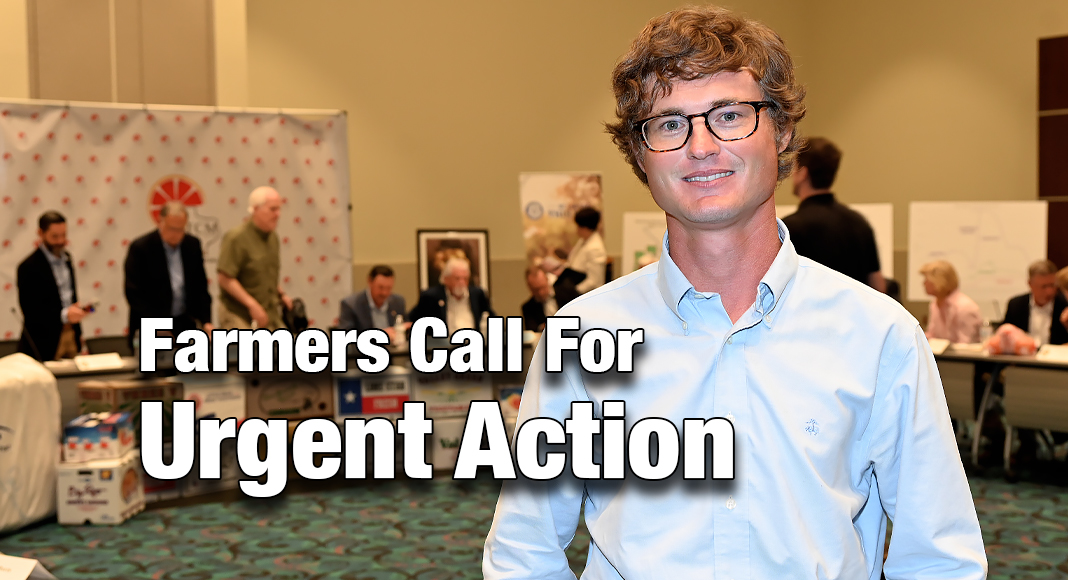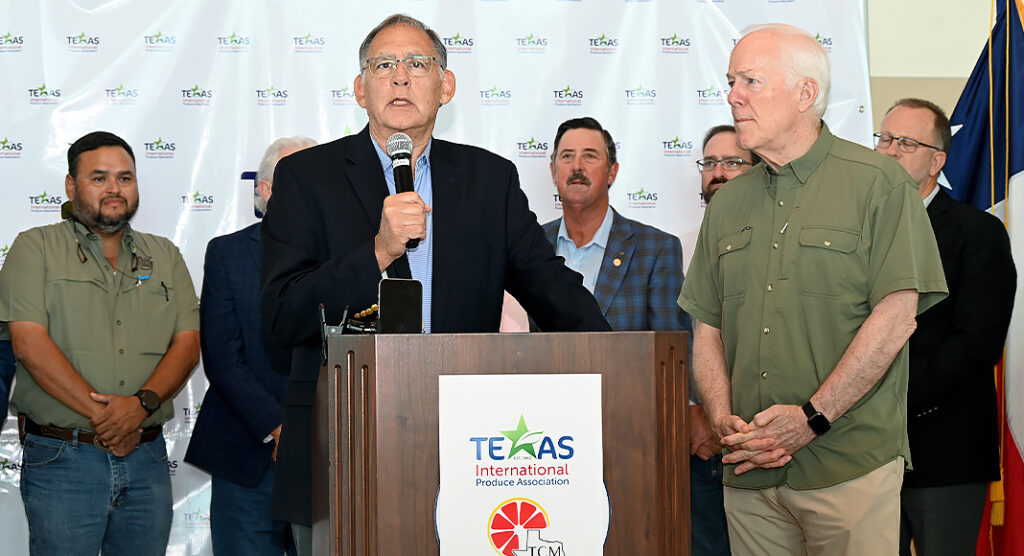
Texas Border Business
By Roberto Hugo González
MISSION, Texas – “Thank you, Senator Cornyn. Thank you for coming down here and taking the time to hear our issues and see what we’re going through,” began Will Beckwith, a vegetable and row crop producer with Beckwith Produce, as he addressed a group of influential figures.
U.S. Senators John Cornyn (R-TX) and John Boozman (R-AR), the Senate Agriculture Committee’s Ranking Member, met with agriculture stakeholders in the Rio Grande Valley to address a growing crisis in the region’s farming community. As the senators listened, Will Beckwith, a vegetable and row crop producer with Beckwith Produce, was among the first to speak, bringing a sense of urgency and frustration to the discussion.

A key topic at the roundtable was the impact of Mexico’s failure to consistently deliver water to the Rio Grande Valley as per the 1944 Water Treaty. The shortage has left many farmers, like Beckwith, struggling to maintain their operations. In response, Beckwith’s farm invested heavily in drip irrigation, a method intended to conserve water. “In 2020, we started switching to drip irrigation to save our water,” he explained. “It saved a bunch, but it’s $600 an acre to put into your fields.” Despite these efforts, the high cost and logistical challenges have made it difficult to sustain their traditional crop rotation, significantly reducing their acreage. “At the end of the day, we’ve had to cut back about 80% of our acres. We can’t grow cotton and grain flood-irrigated,” Beckwith stated, highlighting the dire situation.
Beckwith emphasized that despite improved irrigation methods, systemic failures in water delivery infrastructure have thwarted water conservation efforts. “When you start saving water with drip tape and using pivots to improve your delivery system, you would expect it to save water for the region. We haven’t seen that. We have failures in our delivery systems,” he noted. Beckwith shared a startling example of these inefficiencies: “Where I use 500 acre-feet of water expecting to save water for my cotton and corn production next year, I had to pump 1800 acre-feet of water to deliver those 400 acre-feet.”
The conversation shifted to the lack of adequate risk management tools for farmers. Beckwith originally intended to discuss crop insurance for risk management but realized the pointlessness in the absence of water. “Risk management goes out the window, and there’s no water,” he said. While insurance tools exist for standard crops like onions and cabbage, he pointed out a glaring gap for specialty crops. “We don’t have risk management tools through crop insurance for specialty crops like JD produces.”
Dante Galeazzi, President & CEO of the Texas International Produce Association, echoed Beckwith’s concerns, pointing out the widespread lack of insurance. “We grow about 60 different fresh produce crops here in the state. Only four of them have insurance,” Galeazzi highlighted. This lack of insurance coverage amplifies the financial risks for farmers already grappling with water shortages and infrastructure challenges.
The Mission, Texas roundtable emphasized a severe crisis in the Rio Grande Valley’s agriculture sector. Senators Cornyn and Boozman’s presence at the meeting highlighted the urgency of these issues. The senators called for immediate legislative action on the Farm Bill, urging Senate Majority Leader Chuck Schumer to prioritize the bill when the Senate reconvenes. The bill could provide a critical opportunity to address some of these pressing issues, including water management, infrastructure improvements, and expanded insurance coverage.
The stakes are incredibly high for the farming community in the Rio Grande Valley. As Beckwith concluded his remarks, he left no doubt about the gravity of the situation. “We’re stuck here right now, and we don’t really have any risk management tools or water to grow crops with. And I’ll leave time for everyone else to speak, and I appreciate it. Y’all coming down here?”
The roundtable discussion was a clarion call for immediate and comprehensive policy interventions. Addressing water delivery challenges, improving infrastructure, and expanding insurance coverage are critical steps to safeguarding the future of agriculture in this vital region.
See related stories:
















